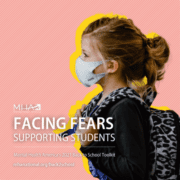Proactive Parenting-Developing a Backup Plan for Your Teenager
By: Julia Bearden
As an adult, we are free to make our own choices. We all have certain values, beliefs, and ideals that guide our choices. The same is true regarding our parenting strategies. The goal of this article is to provide insight into proactive parenting strategies and to help create an effective backup plan if teenagers face a situation they want to leave.
Parenting Practices
Preparing our children and adolescents for challenges they may face is the goal of any parenting approach. Padilla-Walker and colleagues conducted a study in 2011 that addressed effective parenting approaches. These approaches include such practices as:
- Parental sheltering of children to outside influences
- Assisting children with the development of a plan prior to their experience with negative outside influences to ensure their success should they encounter opposition
- Exhibit trust
- Prevent conflict and overreaction
According to the Padilla-Walker and colleagues’ study, “As children enter adolescence, talking to them and then allowing them to make their own decision may provide an appropriate balance between communication of parental socialization values and adolescents’ trust and need for autonomy.”

Image Source: http://i.huffpost.com/
Communication
Providing your teenager with a clear time for communication and giving him/her your complete attention is important in fostering the relationship. Preparing an adolescent with a go-to way out of any situation could be the key to positive outcomes. For instance, regular communication with your teen builds trust and communication pathways. One suggestion could be ensuring your adolescents of a “no questions asked” way out, telling them no matter what situation they are in, if they call or text and need to leave where they are, they can employ the “no questions asked” rule. The “no questions asked” rule can be beneficial to creating and maintaining trust in the relationship. The teen will be able to rest in knowing his or her safety is the primary importance. In addition to this, ensure your teen has memorized a few emergency contact numbers of parents or trusted adults. Then, they can borrow a phone or go someplace to make a call in the event something happens to their cell phone. This
is easy to overlook in today’s cell phone reliant society where numbers are not as commonly memorized. Preparing your teen relies on open, positive, and direct communication.
Involvement
Parental involvement is essential in the adolescent years. Being an involved parent reduces an individual’s risk of making poor decisions due to unaccountability for his or her actions. Some ways to be more involved with your adolescents’ lives without invading their privacy are to meet their friends and their friends’ parents, attend school events and practices/games, give them space/alone time, engaging in activities together, etc. (Positive parenting strategies, 2011).

Image Source: livewellmagazine.org
Meeting parents face to face builds the relationship between your teen and their friends, as well as encourages accountability. For instance, it will be less likely for a teenager to lie about his or her whereabouts if you have already met the friends’ parents and exchanged phone numbers. Attending school events or practices your child is involved in demonstrates your interest in his or her life and will help make your child feel more connected. Teenagers are in an awkward transition between wanting to be close to significant adults and wanting to have space. Giving them space allows them to develop their own opinions and a sense of self. On the other hand, it is also important to find a common interest and spend time around that to foster the relationship. These are not all of the ways to be involved with your teenager because each relationship is different, but utilizing some of these techniques can be the start of being more involved.
References
Padilla-Walker, L.M., Christensen, K.J., Day, R.D. (2011). Proactive parenting practices during early adolescence: A cluster approach. Journal of Adolescence. 34(2), 203-214.
Positive parenting strategies. (2011). A WorkLife4You Guide- Department of Health and Human Services. Retrieved from http://www.wfm.noaa.gov/pdfs/ParentingYourTeen_Handout1.pdf
Foundation for a Drug-Free World. (2017). What does heroin look like?. [online] Available at: http://www.drugfreeworld.org/drugfacts/heroin/what-does-heroin-look-like.html [Accessed 28 Aug. 2017].
Phencyclidine. (2016). [ebook] Drug Enforcement Administration. Available at: https://www.deadiversion.usdoj.gov/drug_chem_info/pcp.pdf [Accessed 30 Aug. 2017].
Justice. (2006). Psilocybin Fast Facts. [online] Available at: https://www.justice.gov/archive/ndic/pubs6/6038/#called [Accessed 30 Aug. 2017].
WebMD. (2014). Teen Slang for Cough and Cold Medicine Abuse. [online] Available at: http://www.webmd.com/parenting/glossary-dxm-drug-abuse [Accessed 30 Aug. 2017].
Drugs. (2017). Kratom: Uses, Effects, Hazards & Abuse Potential – Drugs.com. [online] Available at: https://www.drugs.com/illicit/kratom.html [Accessed 30 Aug. 2017].
Schoolbeat. (n.d.). SchoolBeat: 2CI – 2CE. [online] Available at: https://www.schoolbeat.org/en/parents/know-what-could-affect-your-child/substance-misuse/drugs-index/class-a/2ci-2ce/ [Accessed 30 Aug. 2017].
Schoolbeat. (n.d.). SchoolBeat: PMA. [online] Available at: https://www.schoolbeat.org/en/parents/know-what-could-affect-your-child/substance-misuse/drugs-index/class-a/pma/ [Accessed 30 Aug. 2017].
MedicineNet. (n.d.). Angel’s Trumpet Information | Evidenced-Based Supplement Guide on MedicineNet.com. [online] Available at: http://www.medicinenet.com/angels_trumpet/supplements-vitamins.htm [Accessed 30 Aug. 2017].
Palo Alto Medical Foundation. (2015). Dimethyltryptamine (DMT) | Risky Health Issues for Teens. [online] Available at: http://www.pamf.org/teen/risk/drugs/hallucinogens/dmt.html#Street Names [Accessed 30 Aug. 2017].





